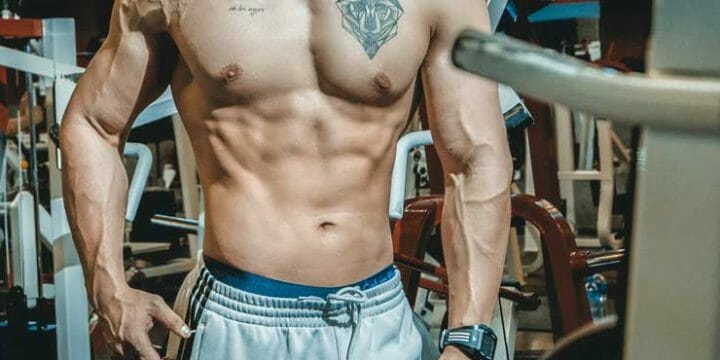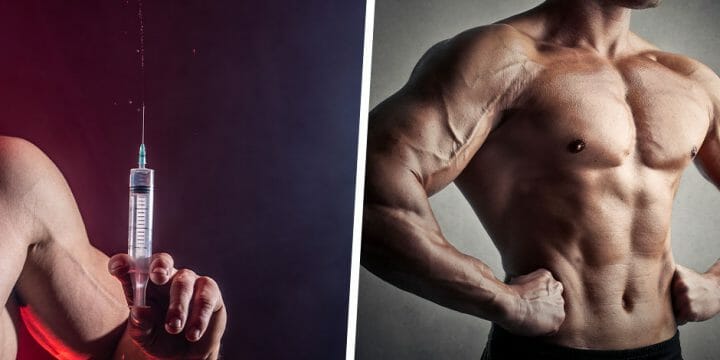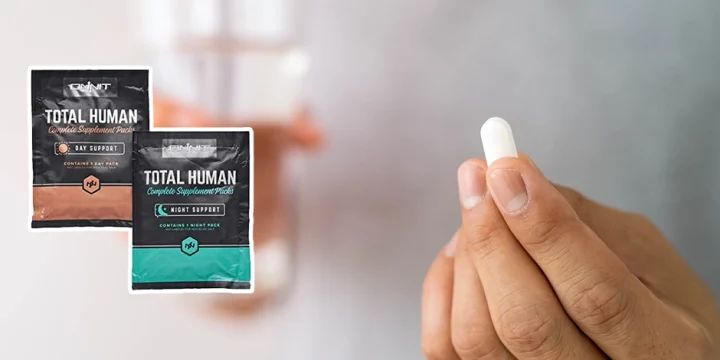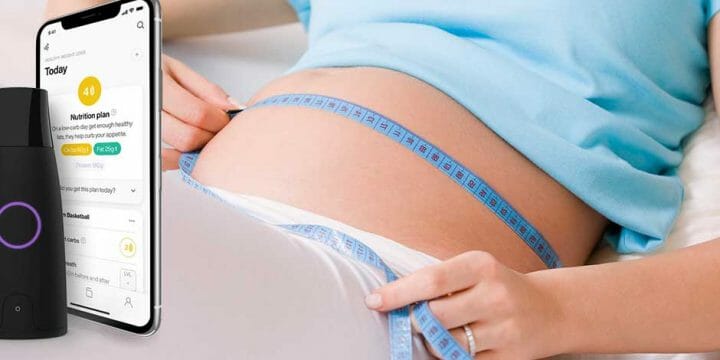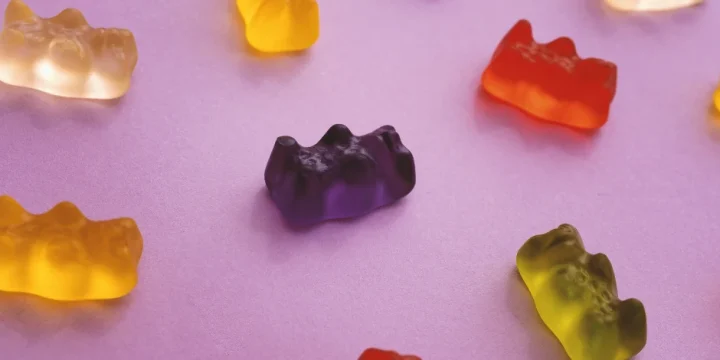Some people trying to lose weight restrict their calorie consumption too much, causing them more harm than good and actually slowing down their weight loss.
I always advise my clients to eat nutritiously balanced meals and keep tabs on their bodies.
To help them better grasp this, I spent days researching the negative signs people should be able to recognize while on calorie restriction.
I discussed my findings with a registered dietician to show you how to tell if you're not eating enough food for weight loss.
Quick Summary
- Mental fog, food cravings, unstable mood, insomnia, digestive issues, and energy dips are some signs you are not eating enough for weight loss.
- You can improve your calorie intake by consistently eating healthy fats, complex carbs, and high protein.
- A study in the National Library of Medicine showed that if you eat less, you'll crave more food, which can lead to weight gain instead of weight loss.
- In my professional experience, prioritizing overall health and well-being over extreme calorie-cutting is the key to sustainable weight management.
8 Signs and Symptoms You're Eating Too Little to Lose Weight

1. Mental Fog
I can't stress this enough - mental fog is real. During my calorie restriction phase, I found it incredibly challenging to focus on anything, let alone my workouts.
A PubMed study suggests that brain cells rely on glucose as fuel for everyday activity [1].
Allowing your sugar levels to drop too low can result in poor cognitive performance and negatively impact your weight loss efforts.
2. Food Cravings
Your next sign that you are on a calorie deficit is that you are constantly thinking about food.
A study in the National Library of Medicine has shown that eating less increases food desires, which can cause you to gain weight [2].
Furthermore, prolonging calorie restriction may reduce overall food cravings but increase the need for a specific type of food [3].
My client says that it felt like his stomach was constantly sending SOS signals to his brain. It turns out that restricting calories can lead to an obsession with food. He wasn't just hungry; he was thinking about food all the time.
3. Insomnia
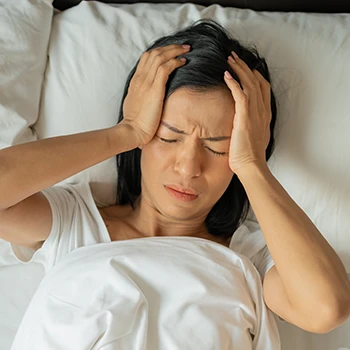
The third sign that you have a low caloric intake is you have trouble falling and staying asleep.
My client says that tossing and turning in bed was a nightly routine. It turns out, a lack of nutrients can mess with your sleep patterns, and that's bad news for your metabolism.
According to a PubMed study, not getting enough nutrients affects the production of brain chemicals and hormones that influence sleep and wakefulness, resulting in sleep disturbances [4].
When you continuously restrict calories and sleep poorly, your metabolism slows down.
4. Unstable Mood
Another sign that you are in a caloric deficit is that you are often cranky over trivial matters.
Another study in the National Library of Medicine suggests that deficiencies in nutrition, particularly cobalamin, folate, and zinc, can cause you to lose your temper and experience mood swings [5].
During these times, stress hormones can increase, affecting your eating habits adversely.
5.Energy Dips

The next sign that you’re not taking in too many calories is less energy expenditure.
According to studies, a lack of B vitamins, iron, and zinc impairs your body's physiological processes, including energy metabolism [6].
I found that a lack of essential nutrients left me drained. It turns out that when your body doesn't get the right fuel, your energy levels plummet, making it tough to perform even basic tasks, let alone work out.
6. Digestive Issues
Another sign of under-eating is having issues in your digestive tract.
According to Medical News Today, a lack of nutrients such as essential amino acids, the building blocks of protein, can cause inflammation of the small intestines, resulting in indigestion, poor absorption, and compromising overall health [7].
“Your body needs a certain amount of calories just to sustain proper function.”
- Kimberly Lummus, MS, RD
7. Low Immunity

One more sign of getting fewer calories is a weak resistance to infection. Another one of my clients says that his immunity took a hit, and he found myself getting sick more often.
Researchers have also found that a lack of vitamins and minerals increases the risk of chronic diseases like hypertension and elevated blood sugar levels, which can negatively influence physical performance [8].
8. Muscle Loss
The final sign that you’re severely cutting calories for fat loss is that you’re losing muscle mass.
Several PubMed studies show that muscle mass loss is more likely to happen if the calorie-restricted diet is low in protein and is not supplemented with regular exercise [9] [10].
If you keep losing more muscles, you might not be able to lose weight in the long run.
How Can You Improve Your Calorie Intake?
You can improve your calorie intake by consistently eating foods high in protein, complex carbs, and healthy fats.
I made it a point to consistently eat foods high in protein, complex carbs, and healthy fats. Instead of depriving myself, I focused on portion control and balanced meals.
For example, I started adding avocado slices to my sandwich, sprinkling healthy nuts on my sugar-free ice cream, and making egg white omelets with low-fat cheese and lots of veggies.
By choosing healthy foods and consuming them in tiny portions throughout the day, you can get all the nutrients your body needs without gaining weight.
What Are the Potential Benefits of Eating Enough Calories?

One of the potential benefits of eating enough calories is a healthy metabolism, which supports proper physiological activities of the body.
Research shows that our bodies need extra calories to properly digest and absorb the food we eat [11].
Through these processes, our bodies are able to get enough energy.
This energy is necessary for us to perform basic functions like breathing and walking. It also keeps us healthy by allowing our cells to keep regenerating and growing.
Are There Risks to Eating Too Few Calories?
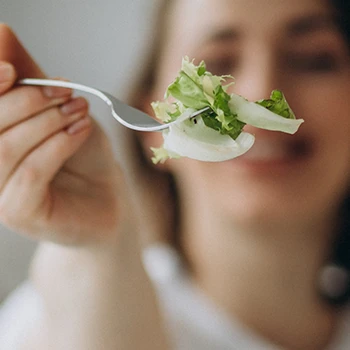
Yes, there are risks to eating too few calories.
Diets that are calorie-restricted may not provide you with sufficient amounts of nutrients such as carbs, fats, proteins, minerals, and vitamins.
A lack of these essential nutrients can result in many health problems, which include anemia, osteoporosis, heart diseases, and autoimmune disorders [12]
Also, chronically depriving your body of enough calories may actually cause your basal metabolic rate to go down, which can make it even more difficult to lose weight [13].
The body simply adjusts to what it perceives as scarcity of food, and that leads to less calorie burning and less energy, which in turn makes working out even a bigger challenge.
So, you should keep in mind that, past a certain point, restricting calories becomes counterproductive for your weight loss, which is the very reason for restricting calories in the first place.
How to Track Caloric Intake
Here are some tips on how to track your caloric intake for the best weight loss results.
1. Use Apps and Tools
Several apps and online tools are available to simplify calorie tracking. MyFitnessPal, Lose It!, and Cronometer are popular options. These apps provide a vast database of foods and their calorie counts, making it easy to log your meals.
2. Read Nutrition Labels
When you consume packaged foods, pay attention to nutrition labels. They provide valuable information about serving sizes and calorie content per serving. Reading labels helps you make informed choices while shopping and eating out.
3. Measure and Weigh
To accurately track your caloric intake, invest in a kitchen scale and measuring cups. Weighing and measuring your food portions ensures precision in your calorie calculations.
Over time, you may become skilled at eyeballing portion sizes, but initially, precise measurements are essential.
4. Keep a Food Diary
For those who prefer a more analog approach, keeping a food diary can be effective. Simply jot down what you eat and drink throughout the day, including portion sizes.
This manual tracking method can be eye-opening and provides a tangible record of your eating habits.
FAQs
How Many Calories Is Too Little?
A daily intake of fewer than 1200 calories appears to be too little. According to research, most adults require approximately 1,200 to 1,920 calories to maintain metabolism, muscle function, and brain activity. Furthermore, an intake of fewer than 600 calories per day can put you in starvation mode.
What Happens if You Eat Too Few Calories and Work Out?
When you eat too few calories and work out, you can slow down your metabolism, reduce your overall well-being, and prevent yourself from losing any more weight. A common rule is that people should consume at least 1,200 calories per day to keep a healthy weight. People who engage in fitness routines, therefore, require more calories for more energy.
References:
- https://pubmed.ncbi.nlm.nih.gov/29796992/
- https://www.ncbi.nlm.nih.gov/pmc/articles/PMC7399671/
- https://www.ncbi.nlm.nih.gov/pmc/articles/PMC6226249/
- https://pubmed.ncbi.nlm.nih.gov/15033150/
- https://www.ncbi.nlm.nih.gov/pmc/articles/PMC6170050/
- https://www.ncbi.nlm.nih.gov/pmc/articles/PMC7019700/
- https://www.medicalnewstoday.com/articles/248330
- https://www.ncbi.nlm.nih.gov/books/NBK235010/
- https://pubmed.ncbi.nlm.nih.gov/24092765/
- https://pubmed.ncbi.nlm.nih.gov/17684207/
- https://journals.physiology.org/doi/full/10.1152/ajpendo.00156.2017
- https://www.ncbi.nlm.nih.gov/pmc/articles/PMC5691702/
- https://www.ncbi.nlm.nih.gov/pmc/articles/PMC9036397/
About The Author
You May Also Like

